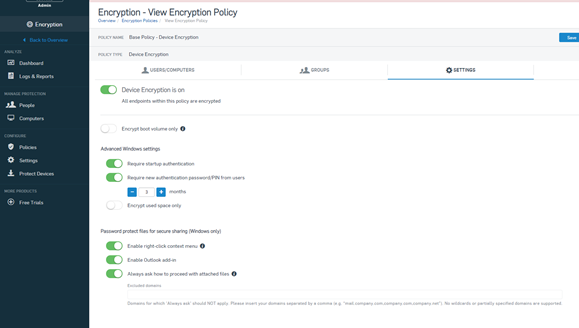Sophos Device Encryption Data at rest
Sophos Device Encryption ensures that data in rest is protected by encryption of the data on the devices, centrally managed on Sophos Central.

What is Sophos Device Encryption?
In today’s digital landscape, the security of sensitive information is paramount, particularly as organizations navigate increasingly stringent regulatory requirements. One such regulation is the Network and Information Security Directive 2 (NIS2), which mandates robust protection for data at rest among critical infrastructure sectors within the European Union. Sophos Central Device Encryption emerges as a vital tool in ensuring compliance with these requirements, offering a comprehensive solution that not only secures data at rest but also integrates seamlessly with broader cybersecurity frameworks.
Understanding the NIS2 Directive and Its Focus on Data at Rest
The NIS2 Directive, an update to the original NIS Directive, significantly broadens the scope of cybersecurity measures required for essential and important entities within the EU. This directive encompasses a wide range of sectors, including energy, transport, banking, healthcare, and digital infrastructure, among others. A key component of NIS2 is the requirement to protect data at rest—data stored on devices such as hard drives, SSDs, and other storage media—from unauthorized access and breaches.
Data at rest represents a critical vulnerability because it is often less actively monitored than data in transit, making it a prime target for cybercriminals. The directive calls for the implementation of state-of-the-art encryption technologies to mitigate this risk, ensuring that sensitive information remains inaccessible even if physical security is compromised.
Sophos Central Device Encryption: A Robust Solution for Data at Rest
Sophos Central Device Encryption is a cutting-edge solution designed to meet the stringent requirements of regulations like NIS2. It provides full-disk encryption for endpoints, ensuring that all data stored on a device is protected by the highest encryption standards available today. Let’s delve into how Sophos Central Device Encryption can help your organization achieve compliance with NIS2 and safeguard sensitive information.
Comprehensive Encryption Across Devices
At the core of Sophos Central Device Encryption is its ability to provide full-disk encryption, leveraging the advanced AES-256 encryption standard. This level of encryption is recognized as one of the most secure methods for protecting data, effectively making stored data unreadable to unauthorized users. Whether a device is lost, stolen, or accessed by unauthorized personnel, the encryption ensures that the data remains protected.
Full-disk encryption is particularly critical for organizations that manage a large number of endpoints, such as laptops, desktops, and mobile devices. These devices are often the weakest link in an organization’s security chain, especially in environments where employees work remotely or travel frequently. Sophos Central Device Encryption secures these endpoints by encrypting the entire disk, ensuring that all data, including operating system files and user files, is protected.
Centralized Management Through Sophos Central
One of the standout features of Sophos Central Device Encryption is its integration into the Sophos Central platform—a unified management console that provides comprehensive visibility and control over your organization’s cybersecurity measures. This centralized approach simplifies the management of encryption policies, key recovery, and compliance reporting.
Sophos Central allows administrators to deploy and manage encryption across all devices in the network from a single pane of glass. This not only reduces the complexity of managing encryption across multiple endpoints but also ensures that compliance with NIS2 requirements can be monitored and enforced consistently. Automated compliance reports and alerts further enhance the ability to respond to potential security issues proactively.
Seamless Integration with Existing IT Infrastructure
Sophos Central Device Encryption is designed to integrate seamlessly with existing IT infrastructures, whether on-premises or in the cloud. It supports both Windows BitLocker and macOS FileVault, allowing organizations to leverage native encryption technologies already built into the operating system. This approach minimizes the need for additional software and reduces the complexity of deploying encryption across a diverse range of devices.
The ability to use native encryption tools also means that Sophos Central Device Encryption can be rolled out quickly and efficiently, with minimal disruption to business operations. This is particularly important for organizations that need to achieve compliance with NIS2 within tight deadlines.
Advanced Key Management and Recovery
Key management is a critical aspect of any encryption solution. Sophos Central Device Encryption offers robust key management capabilities, ensuring that encryption keys are securely stored and managed throughout their lifecycle. The platform includes options for automated key recovery, allowing administrators to recover encryption keys in the event of device failure or user lockout.
This feature is particularly valuable in scenarios where employees may forget passwords or when devices need to be accessed after an employee leaves the organization. Automated key recovery reduces downtime and ensures that encrypted data remains accessible to authorized personnel while still maintaining the highest levels of security.
Compliance Reporting and Audit Capabilities
Compliance with NIS2 requires not only the implementation of encryption but also the ability to demonstrate that security measures are effective and consistently applied. Sophos Central Device Encryption includes comprehensive reporting and audit capabilities, allowing organizations to generate detailed reports on the encryption status of all devices.
These reports can be customized to meet specific regulatory requirements, providing auditors with clear evidence of compliance. Regular audits and compliance checks ensure that encryption policies are enforced across the entire organization, reducing the risk of non-compliance and potential penalties.
Enhanced Security Through Multi-Factor Authentication (MFA)
Sophos Central Device Encryption supports multi-factor authentication (MFA), adding an additional layer of security to the encryption process. MFA ensures that even if an attacker gains access to a device, they cannot decrypt the data without also having access to the second factor of authentication, such as a mobile device or security token.
This is particularly important in the context of NIS2, which emphasizes the need for robust authentication mechanisms to protect critical infrastructure. By combining encryption with MFA, organizations can significantly enhance the security of data at rest, ensuring that it remains protected against even the most sophisticated attacks.
Aligning Sophos Central Device Encryption with NIS2 Compliance
The NIS2 Directive sets a high bar for cybersecurity, particularly in sectors that manage critical infrastructure. Compliance requires not only the implementation of technical measures like encryption but also the ability to demonstrate that these measures are effective and aligned with regulatory requirements. Sophos Central Device Encryption offers a comprehensive solution that meets these needs, providing full-disk encryption, centralized management, and robust reporting capabilities.
Meeting NIS2’s Technical Requirements
NIS2 mandates the protection of data at rest through encryption or other equivalent security measures. Sophos Central Device Encryption’s use of AES-256 encryption ensures that organizations meet this requirement with a recognized industry standard. The platform’s ability to integrate with native OS encryption tools also ensures that deployment is straightforward and consistent across all devices.
Simplifying Compliance Management
With Sophos Central, organizations can streamline their compliance efforts by managing all encryption-related activities from a single platform. This centralized approach reduces the administrative burden associated with maintaining compliance, allowing IT teams to focus on other critical tasks. The ability to generate automated compliance reports further simplifies the audit process, ensuring that organizations can quickly and easily demonstrate compliance with NIS2.
Enhancing Organizational Security Posture
By implementing Sophos Central Device Encryption, organizations not only achieve compliance with NIS2 but also enhance their overall security posture. The combination of full-disk encryption, advanced key management, MFA, and centralized control provides a multi-layered defense against data breaches and unauthorized access. This holistic approach to security ensures that sensitive data remains protected, regardless of the threat landscape.
Frequently asked questions
Check our FAQ section where you can find the first questions that have been asked to us during the last months.
Contact usHow does centralized management in Sophos Central enhance compliance with NIS2?
Centralized management in Sophos Central simplifies compliance with NIS2 by allowing administrators to control and monitor encryption policies across all devices from a single platform. This unified approach enables consistent enforcement of security measures, quick identification of non-compliance issues, and the generation of compliance reports, making it easier to demonstrate adherence to NIS2 requirements.
How does Sophos Device Encryption help organizations comply with NIS2 requirements?
Sophos Device Encryption helps organizations comply with NIS2 by providing full-disk encryption using AES-256, a standard recognized for its high level of security. The solution ensures that all data stored on a device is encrypted and protected, which is a key requirement of NIS2. Additionally, the centralized management features of Sophos Central allow for easy monitoring, policy enforcement, and reporting, all of which are essential for demonstrating compliance.
How does Sophos Device Encryption integrate with existing IT infrastructures?
Sophos Device Encryption integrates seamlessly with existing IT infrastructures by supporting native encryption tools like Windows BitLocker and macOS FileVault. This integration allows organizations to deploy encryption quickly and efficiently across diverse environments, minimizing disruption and ensuring compatibility with existing systems.
How does Sophos Device Encryption support compliance reporting and audit requirements under NIS2?
Sophos Device Encryption supports compliance reporting and audit requirements by providing detailed, customizable reports on the encryption status of all devices within an organization. These reports can be used to demonstrate compliance with NIS2, making it easier for organizations to meet regulatory obligations and respond to audit requests.
What are the benefits of using AES-256 encryption in Sophos Device Encryption?
AES-256 encryption is known for its robust security, making it extremely difficult to crack. The benefits of using AES-256 in Sophos Central Device Encryption include strong protection of sensitive data at rest, compliance with industry standards and regulations like NIS2, and peace of mind that even if a device is lost or stolen, the data remains inaccessible to unauthorized users.
What is the NIS2 Directive, and why is data at rest protection important under this regulation?
The NIS2 Directive is a cybersecurity regulation in the European Union that aims to strengthen the security of network and information systems across critical infrastructure sectors. Data at rest protection is crucial under NIS2 because it ensures that sensitive information stored on devices is encrypted and remains secure even if the physical security of the device is compromised. This helps prevent unauthorized access and data breaches, which are critical concerns for sectors such as healthcare, energy, and finance.
What role does multi-factor authentication (MFA) play in enhancing the security of encrypted data in Sophos Central?
Multi-factor authentication (MFA) adds an additional layer of security to the encryption process by requiring users to provide a second form of verification, such as a code from a mobile device, in addition to their password. This reduces the risk of unauthorized access to encrypted data, even if a password is compromised, aligning with NIS2’s emphasis on strong authentication mechanisms.
Why is full-disk encryption important for protecting data at rest?
Full-disk encryption is important because it protects all data on a device, not just specific files or folders. This comprehensive protection ensures that sensitive information, including system files and user data, is encrypted and inaccessible without the correct decryption key. This is particularly crucial for meeting NIS2 requirements, which emphasize the security of data at rest.
Contact us for a demo
Are you curious to learn how Sophos Central Device Encryption can help you to protect your data at rest on every device? Contact us for a demo via the below button.
